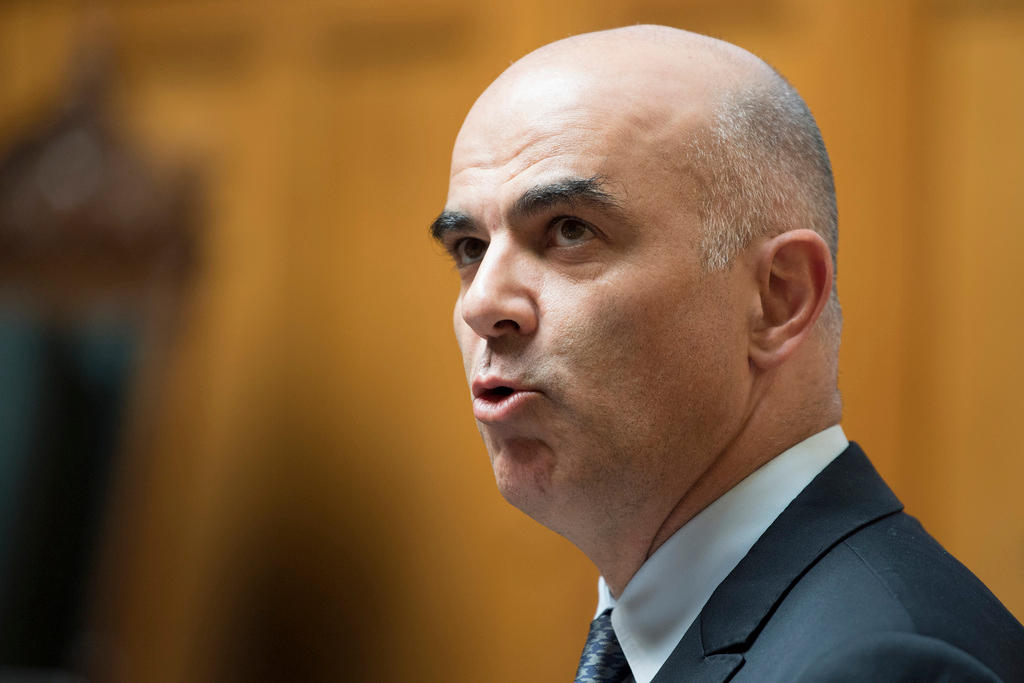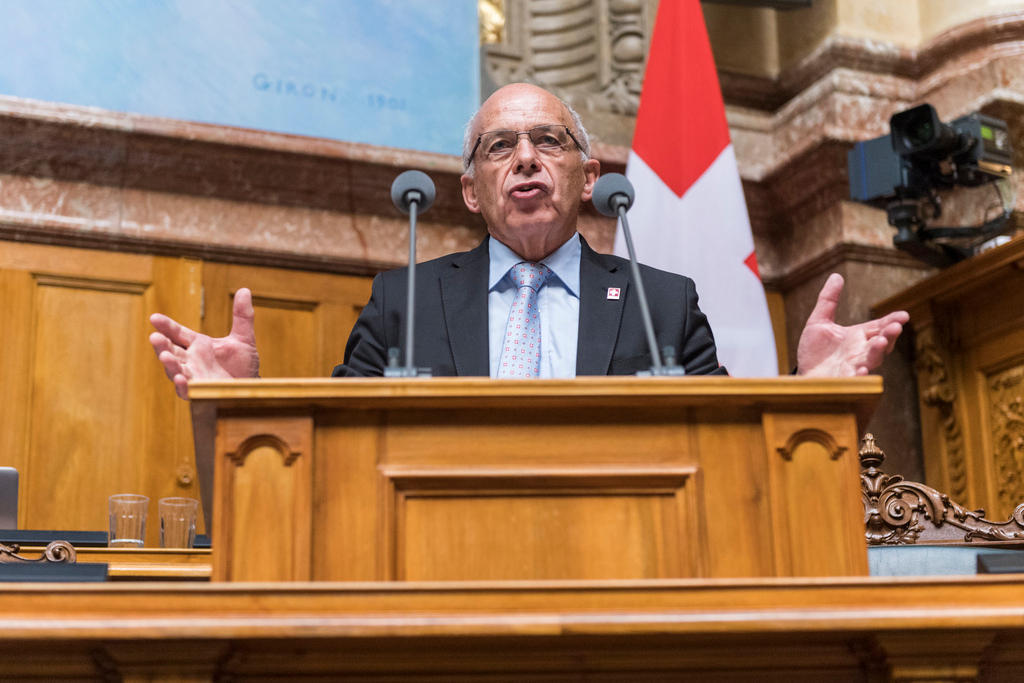Corporate tax and pension reform: a complex two-headed vote

Two years after a major corporate tax overhaul was rejected by Swiss voters, the issue is back before the electorate on May 19. This time, the government has linked it to another sensitive dossier: the financing of the pension system.
“A typically Swiss compromise.”
This is how the government has labelled the complex legal package to be put to voters on May 19; a package that combines proposals to reform the corporate tax system with the issue of financing the state old-age pension system.
The political jerry-rig wants to push through changes in two major policy areas that were both separately rejected by voters two years ago: revisions to the corporate tax system, which were thrown out by 59% of the electorate in February 2017, and the overhaul of the pension system, narrowly rejected later that same year.
And though the current compromise package passed through parliament successfully last September, it did not meet with the approval of some left-wing parties and trade unions, who in January handed in the 50,000 signatures needed to force a national referendum.
Corporate tax reform: what has changed?
After the 2017 rejection by voters, who felt that the tax reform was too generous to business (while international companies will mostly see tax hikes, domestic SMEs will rather pay less), the government quickly got to work to formulate a new version.
Indeed, time is of the essence: Switzerland has signed up to respect international rules laid down by the Organisation for Economic Co-operation and Development (OECD), demanding the abolition of practices such as preferential tax treatment by the end of 2019.
The country also faces pressure from the European Union, which has placed Switzerland on its grey list of tax havensExternal link; failure to reform could yet land it on the black list.
As for the new proposals, the basic goal remains the same: to remove the privileges granted to certain (usually foreign) firms and apply a level playing field, all without damaging the Swiss reputation as an attractive low-tax destination for business.
The government claims that the new reform is fairer and more transparent than that of 2017.
For example, tax breaks on profits derived from patents and deductions for investment in research and development should not make up more than 70% of taxable profits, the new law stipulates. Meanwhile, shareholder dividends will be taxed at 70% at the federal level and at least 50% at the cantonal level.
The 26 cantons, which have wide- ranging fiscal autonomy (see chart) will also be substantially compensated for the probable loss of tax revenue that would follow the reforms, while municipalities will also be appropriately reimbursed for negative effects.
Why is corporate tax linked with pensions?
The package is the outcome of a fairly leftfield political compromise, even for Switzerland.
Because the tax reform is likely to result in some CHF2 billion ($2.01 billion) of lost income for public coffers, the government feared a left-wing backlash and a possible repeat of the 2017 failure. It thus came up with the idea of ‘social compensation’ through the boosting of family allowance payments.
However, at parliamentary level, politicians preferred the idea of channelling this into the cash-flow of the ailing public pension system: and so, for each franc lost due to the tax reform, the bill proposes, a compensatory franc will be pumped into pensions.
What exactly is the link?
However, don’t be misled: though it is integrally linked to the vote on May 19, the reform of the pension system as such is not decided here – the continuation of efforts to come up with a comprehensive overhaul of the system is also ongoing.
Rather, several specific legal provisions relating to the financing of the pension system are up for modification. Basically, the changes would allow for CHF2 billion of supplementary payments into the pension coffers each year, thanks to a larger contribution by the state, companies, and employees.
However, the direct linkage of the two areas – voters must accept the whole package or none of it – has come under fire from some lawyers, who say that issues put to popular vote in Switzerland are supposed to conform to a principal of policy uniformity.
Responding to this, the Federal Office of Justice reckons that linking the two issues represents a “borderline” but acceptable case.
What are the arguments by the proponents?
For the government, the project offers a “balanced solution for two urgent problemsExternal link”.
It reckons that corporate tax needs to be quickly overhauled to allow Switzerland to remain competitive, while the pension system, struggling with increasing expenses and an ageing population, needs to be bolstered.
The government also claims it has learned from the 2017 reform failure, and has thus promised to better shore up cantons and municipalities that lose out on tax revenue. Finally, it says, the reform will not just help businesses, but also the population, via the boosting of the pension system.
A majority in parliament also supported the package, albeit unenthusiastically, judging it an acceptable compromise to push forward two key policy areas for the country.
As for the campaign, while the Social Democrats and Christian Democrats are urging voters to back the bill, several other parties – the People’s Party (right-wing), the Greens (left-wing) and the Liberal Greens (centrist) – have come out against it, saying that the two issues in the package should be more clearly separated in order to give a true choice to voters.
What does the opposition say?
It was the youth wing of the Green Party that was first to announce their intention to challenge the issue to a referendum; they were soon joined by several trade unions.
Essentially, they say, the new project is identical to the 2017 version, and they thus accuse the government of not respecting the decision of voters at that point. The same argument is also used now as then: the reform is a gift to big business and shareholders and comes at the detriment of public administrations that will be forced to make cuts in social services.
Even under the new system, Switzerland will continue to promote international tax evasion, some opponents say.
As for the funds pushed into the pension system, this is positive, but not a real ‘social compensation’ because pension payments themselves are not going to increase. It is also unacceptable that public services are the ones forking out to shore up the pension system.

More
Corporate tax reform blown away at polls
Translated from French by Domhnall O’Sullivan, swissinfo.ch

In compliance with the JTI standards
More: SWI swissinfo.ch certified by the Journalism Trust Initiative












You can find an overview of ongoing debates with our journalists here . Please join us!
If you want to start a conversation about a topic raised in this article or want to report factual errors, email us at english@swissinfo.ch.